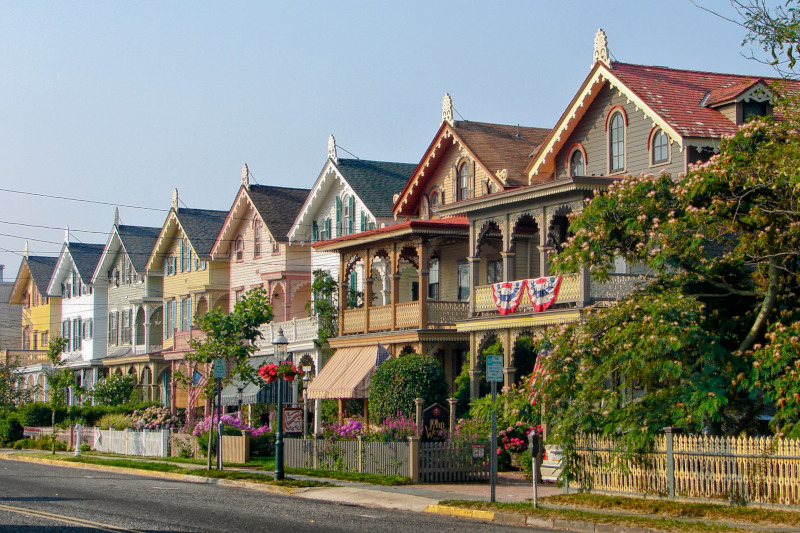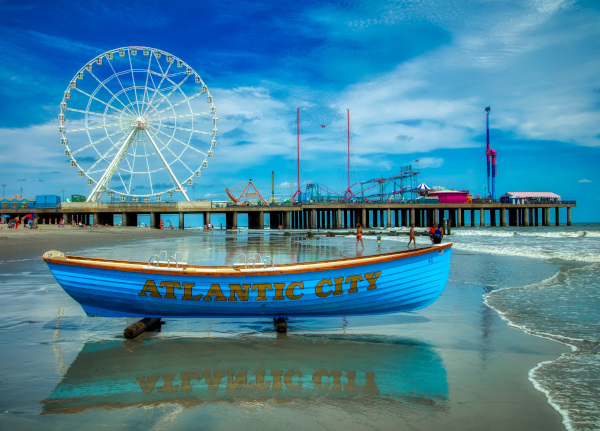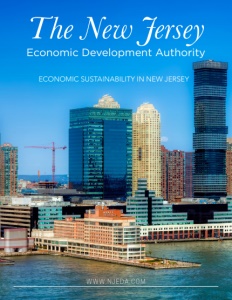The New Jersey Economic Development Authority
Economic Sustainability in New Jersey
By Tim Sullivan, Chief Executive Officer of the New Jersey Economic Development Authority
Governor Phil Murphy has unveiled a comprehensive economic plan for creating a stronger and fairer New Jersey economy that will lead to economic sustainability and enable the Garden State to once again be a leader in the national and global economy.
The plan aims to achieve five key goals by 2025:
- Driving faster job growth over this time period than all Northeast peer states by fostering a better, more supportive business climate;
- Achieving faster median wage growth than all Northeast peer states;
- Creating the most diverse innovation ecosystem in the nation and doubling venture capital investment in the state;
- Closing the gender wage and employment gaps; and
- Encouraging thriving and inclusive New Jersey urban centers and downtowns, with a focus on reducing poverty.
The plan lays out four strategic priorities to achieve these goals.
- Invest in people to help all New Jersey residents find work that supports and sustains families;
- Invest in communities to build world-class cities, towns, and infrastructure statewide;
- Make New Jersey the State of Innovation to create more and better jobs across the State; and
- Make government work better to improve New Jersey’s competitiveness and business climate.
These strategies, supported by smart and focused programs and initiatives, will spark sustainable, equitable growth in communities all around New Jersey. The New Jersey Economic Development Authority (NJEDA) is proud to play a vital role in the creation and implementation of many of these programs.
Investing in People

Tim Sullivan, CEO
A stronger and fairer New Jersey economy will reinvest in New Jersey residents to ensure everyone can succeed in the jobs of today and be well-positioned for the jobs of tomorrow. By attracting new talent and working to develop the talented workforce that already exists within our borders, New Jersey can make progress toward our goal of higher wages and increased employment for all.
New Jersey’s economic future requires an investment in education to ensure the next generation of New Jersey’s workforce has the tools to succeed in an innovation economy. This includes new initiatives such as a “Computer Science for All” program that funds technology and programming classes in K-12 schools for the first time, a STEM loan forgiveness program that reduces student loan obligations for graduates in high-growth STEM occupations who stay in New Jersey, and the NJ Career Accelerator Internship Program that offers students on-the-job experience through paid internships. In his recent budget address, the Governor proposed increasing spending on K-12 public schools by $557.5 million since 2018.
In addition to these initiatives, Governor Murphy and Secretary of Higher Education Zakiya Smith Ellis recently unveiled the Office of the Secretary of Higher Education’s Strategic Plan. The plan offers a student-centered roadmap to making higher education more affordable and accessible to all students. I encourage you to read it at https://www.state.nj.us/highereducation/stateplan.shtml.

Investing in Communities
To build world-class cities, towns, and infrastructure statewide, we need to continue to make New Jersey among the best places in the country to live and work. That starts with investing in our cities and downtowns and helping to turn around communities that have suffered from underinvestment and geographic and economic isolation.
Earlier this year, we expanded our Small Business Lease Assistance Program, which reimburses small businesses a portion of annual lease payments for new or additional space leased in targeted areas around the state. The program is now available in thirteen cities, including the five legislatively-designated Garden State Growth Zones (GSGZs)—Atlantic City, Camden, Trenton, Passaic, and Paterson—as well as eight Urban Enterprise Zones (UEZs) with Main Streets as designated by the NJ Department of Community Affairs: Bridgeton, Jersey City, Millville, Mt. Holly, Phillipsburg, Plainfield, Salem, and Vineland. Within each municipality, the NJEDA can approve up to $100,000 in lease assistance per year for three years. To ensure the greatest possible impact, the NJEDA has coordinated with the relevant municipalities on specific areas of eligibility within the cities that are consistent with local redevelopment plans and fit into each city’s long-term vision.
In addition to supporting small businesses, the NJEDA is also working to attract investment into New Jersey’s Opportunity Zones. In partnership with the New Jersey Department of Community Affairs (DCA) and the New Jersey Redevelopment Authority (NJRA), we are developing an online NJ Opportunity Zone Marketplace where qualified investors from around the country can identify eligible New Jersey projects for possible investment. The NJEDA, DCA, and NJRA will also partner to launch the New Jersey Opportunity Zone Challenge, a competitive funding program that will leverage community knowledge, skills, and abilities to boost local community-based capacity in financial and technical planning. The funding will help selected entities write plans to identify their specific needs, leverage local resources, and advance projects through the development process.
The Opportunity Zone Challenge follows on the success of Governor Murphy’s Innovation Challenge, through which the NJEDA provided grant funding to communities throughout New Jersey to develop plans to drive innovation at the local level. To date, the NJEDA has already awarded $100,000 each to 14 cities and counties, who are partnering with New Jersey colleges and universities to develop plans to take the next step toward building inclusive communities and innovation centers.
Governor Murphy’s economic plan also stressed the importance of brownfields redevelopment as an important component of smart planning that will allow New Jersey to meet its goals for economic growth while minimizing the environmental impact and sprawl that is the byproduct of new development. To help communities revitalize contaminated properties, the NJEDA Board approved the creation of a new Brownfields Loan Program that will provide low-interest financing to help complete cleanup of contaminated sites that are vacant or underutilized, paving the way for these sites to be put back to productive use. The Brownfields Loan Program complements the Governor’s proposed Brownfields Tax Credit, which would serve to close project financing gaps to revitalize underutilized industrial properties while incentivizing the preservation of New Jersey’s green spaces.
In addition to these enhanced brownfields resources, the NJEDA and the New Jersey Department of Environmental Protection have agreed to expand the Community Collaborative Initiative (CCI), placing DEP staff at the ground-level in targeted urban areas to provide expertise and support on brownfields redevelopment and urban revitalization efforts. The expansion of the CCI now provides more cities with a direct connection to specialized expertise for addressing complex environmental issues, leading to successful remediation and redevelopment of contaminated sites.
In addition to brownfields redevelopment, the Governor has also proposed additional place-based programs to help catalyze investment in New Jersey’s cities. The proposed Historic Preservation Tax Credit will help revitalize underused historic structures and make them an important part of New Jersey’s urban centers while upholding their storied pasts. The proposed NJ Aspire Tax Credit Program will provide tax credits on a competitive basis to help address funding gaps in commercial, residential, and mixed-use (including parking) projects, with a focus on cities, downtowns, and suburban neighborhoods served by mass transit.

Making NJ the State of Innovation
New Jersey has the eighth largest economy in the United States, generating over $590 billion in economic output or nearly three percent of the entire U.S. economy. However, over the past decade, New Jersey’s role as a leader in innovation has slipped significantly. Governor Murphy is committed to reversing that course and seeing New Jersey reclaim its leadership role in this vital sector.
To achieve this goal, the Governor took the important step of re-establishing the Commission on Science, Innovation, and Technology, which will lead the way in promoting the state as a home for academic and technological research, development, and commercialization.
To provide an environment where start-up companies have the best opportunity to succeed, the NJEDA created NJ Ignite – a rent-support program that provides start-up technology and life sciences companies with up to nine months of rent support in exchange for moving into and operating from approved collaborative workspaces. Over a dozen incubators, accelerators, and coworking spaces have already been approved to participate in NJ Ignite.
Governor Murphy has also proposed a New Jersey Innovation Evergreen Fund, designed to supercharge the return of venture capital to the Garden State. As proposed, a total of approximately $500 million in capital would be available through the program. The NJIEF would raise approximately $250 million in capital by competitively auctioning new state tax credits to New Jersey corporations who want to participate in the innovation economy. Underscoring the important role collaboration plays in building the Garden State’s innovation ecosystem, the bidders would not only have to bid on price, but also on what value and support they would bring to the state’s innovation ecosystem. At a minimum, successful corporate bidders would agree to provide mentoring and networking support for the funded companies. The Fund would then invest the auction proceeds, alongside at least $250 million in funds from venture capital firms, into promising startups with the potential to scale up and create jobs.
New Jersey is also taking steps to emerge as a leader in several high-wage, high-growth sectors. New Jersey’s location along the eastern seaboard offers an opportunity to be a leader in the offshore wind industry, and New Jersey has resources available to support this key sector. The NJEDA recently established the Offshore Wind Tax Credit, which provides reimbursement for capital investment made in offshore wind-related facilities in the seven southern counties of New Jersey. Additionally, Governor Murphy recently announced that New Jersey is creating an Offshore Wind Supply Chain Registry. This free online portal will allow investors exploring offshore wind-related projects in New Jersey to find Jersey-based companies to partner with or purchase from. We also envision the creation of the Wind Innovation & New Development (WIND) Institute to fully leverage our state’s expansive academic and workforce training assets to develop a robust wind industry.
Finally, the Governor has proposed the NJ Forward Tax Credit Program as a more focused and strategic way to remain competitive with our neighboring states by incentivizing high-wage, high-growth sectors.
Make Government Work Better
Over the past several decades, New Jersey has become a more complex and challenging environment for businesses to navigate. A stronger and fairer New Jersey economy makes doing business easier by providing better support for businesses, and by infusing more customer-friendly strategies in the state’s government practices to better reach and serve businesses and residents.
The NJEDA has taken several steps in this vital area, including the creation of a Small Business Services Unit to provide financial, workforce, and technical support to the State’s small business community, with a focus on historically underrepresented firms, including women, minority, veteran, disability, and LGBTQ-owned enterprises.
Through a new pilot lending program called Access, NJEDA is making financing available to a wider range of small, women, minority, and veteran-owned businesses by placing a greater emphasis on cash-flow with less reliance on hard collateral.
The NJEDA and the African American Chamber of Commerce of New Jersey (AACCNJ) have partnered to establish and operate the Small Business Bonding Readiness Assistance Program, a training program that will better position small, minority, and women-owned businesses to compete for state or federal government contracts. Under the program, eligible companies participate in a training course designed to increase bonding knowledge and capacity, with a focus on the construction and development industries. Tuition grants cover the cost of the training for small businesses selected to participate.
It’s an exciting time for New Jersey’s business community. With the Governor’s economic plan as a guideline and the NJEDA’s shift in focus to spur economic opportunities for communities, small businesses owners, and entrepreneurs around the state, New Jersey can once again be a leader on the global and national stage. The best is yet to come!
AT A GLANCE
WHO: The New Jersey Economic Development Authority
WHAT: An independent government entity dedicated to broadening and expanding the state’s economic base.
WHERE: Trenton, New Jersey
WEBSITE: www.njeda.com


